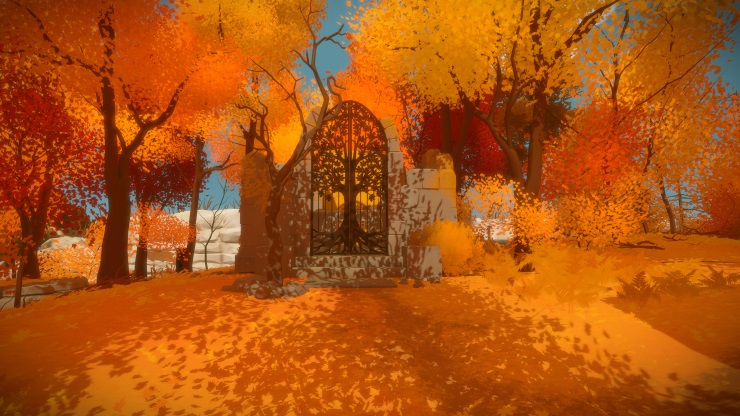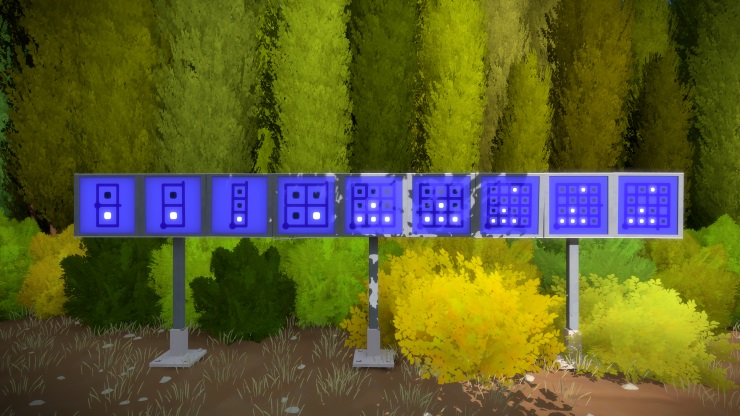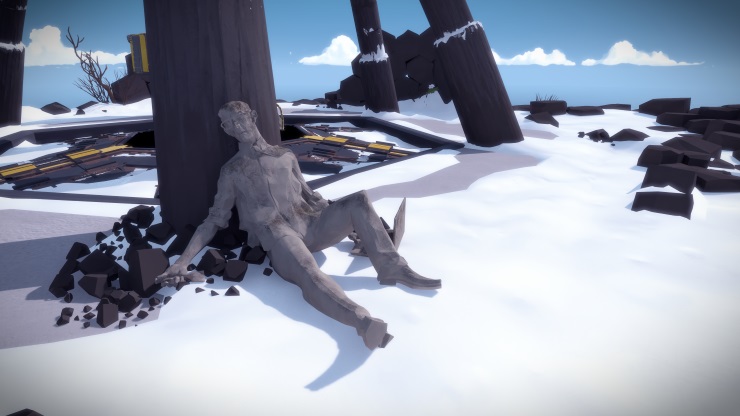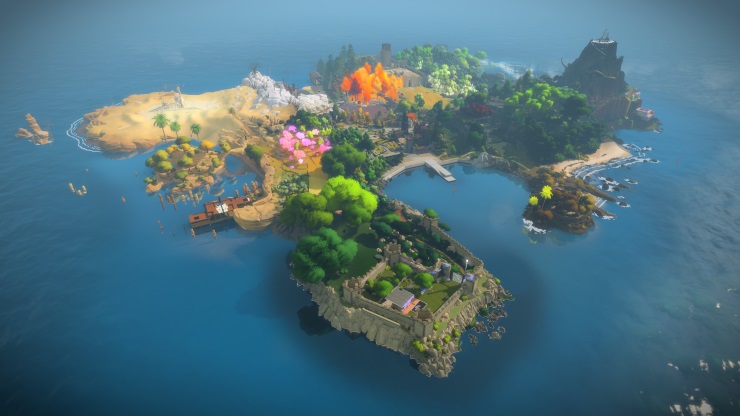January 26, 2016.
Years ago, when I had finished my degree and was aimlessly trying to decide what I wanted to do with the rest of my life, I attended a recruitment event for GCHQ, it included an interview and then two hours of aptitude tests to assess numerical, verbal, spatial, and logical reasoning. It was the most terrifying two hours of my life, and an event that came to mind when I began playing The Witness.
I’ll be honest, playing through the first few hours, I just couldn’t see what the fuss was about. Sure, it is a very pretty game, you emerge from darkness into a sun-splashed courtyard with beautiful tumbling wisteria providing dappled shade in what appears to be a ruined gatehouse of some sort. The first few puzzles introduce what is expected of you in order to progress and the island opens up before you to explore.
You are free to wander wherever and attempt any sequence of puzzles, if you get stuck on one, you can leave it and attempt another set. Each puzzle grouping begins in a uniform way: a small set of panels that act as a tutorial to introduce the particular “rules” of that sequence. The puzzles are like a language, there is a syntax to them, and once they are understood you can apply them to increasingly more complex panels. The learning curve is sublimely done, easing you in to each puzzle slowly, teaching you the principles to solve that particular sequence, and if you get stuck you can return to these early ones and reaffirm the rule set before continuing on.

There is no overt story, instead you create your own narrative out of the mystery of the place. The island itself feels like a puzzle; it’s beautiful, but in a preternatural way. Surrounded by seemingly limitless ocean, it’s made up of a patchwork of familiar biomes: a bamboo forest, a sun-baked desert, a stunning autumnal forest, mangroves, even a snow capped mountain. Everything feels deliberately placed, there is a sense that nothing is there by accident. Every tree, rock, and building has been built with the puzzles in mind. As you explore you come across statues of people, some in supplication and it adds to a sense of unease, as if these were once real people inhabiting this strange island and they have been frozen in place forever, and indeed they might have been, as time has literally stood still, the sun forever placed at some time shortly after midday.
The puzzles are not aimless, there is a sense of objective in that completing each area will activate a machine to fire a laser light to a point at the top of the mountain. It serves as an over-arching goal, a driver to continue solving panels of puzzles- “perhaps if I get into the mountain I will understand what this place is about”. But having that goal is not necessarily what makes The Witness great.

The closest approximation I can make with regards to the “story” of The Witness is Bloodborne, in that the more you find and solve the panels, the more of the world is slowly revealed to you. Gradually, the brilliance of how each area is interconnected, and how the line puzzles unify everything on the island becomes apparent the more you solve. There are audio recordings that provide philosophical musings, and other secrets that the island rewards you with for your persistence. There is a sense that everything you do means something, that there is some lofty goal to aspire to. It’s tough to talk about this element of the game without providing spoilers, but I got a real sense that Jonathan Blow and Thekla is making a statement with this game; that making sense of what surrounds you is a noble pursuit.
There’s no music, and the only sounds are those of your footsteps, or the breeze in the trees. Occasionally there is a faint hum of machinery when you get close to something. The sound (or lack thereof) began to unnerve me as I played. I suffered mild motion sickness when playing and the monotonous hum of the machinery seemed to amplify my nausea. In a game where signs play such a predominant part of the very essence of the game, where nothing is there by accident, it was hard for me to shake the feeling that I was supposed to be unsettled by these puzzles.

There are elements of The Witness that do fall down, there are accessibility issues for hearing impaired players, although Blow has stated that these are not required for finishing the game, it is a shame that not all of the secrets the island has to offer will be available for all. Colourblind players will also struggle with some areas, and for those like myself suffering motion sickness some of the late game puzzles feel like a punishment. There are also puzzles that if you fail you are required to retrace your steps and reactivate the panel before it again before trying to solve it. It’s clear that this is to discourage you from just brute-forcing the solution, thus finding the answer for yourself, but it feels clumsy and more like busy work than a reaffirmation of a lesson. But these are mild annoyances in what is a superbly crafted puzzle game.
There are hundreds of puzzles to solve on the island, during my time there I have solved over 400 and seen the end game, but there are still many many more to solve with questions still unanswered. I am not even sure that if I do solve them all I will get all the answers, or even if that is the point. What is clear though is that The Witness is a brilliant, nuanced puzzle game, a triumph of design and is an absolute must play for fans of puzzles.
Sublime learning curve.
Supremely satisfying.
Has an engaging mystery to the world.
Suffers accessibility issues.
Some elements feel like busy work.
The Witness is an outstanding game, one that slowly reveals its brilliance and assumes the players intelligence rather than guides it. It is an absolute must play for puzzle fans.



